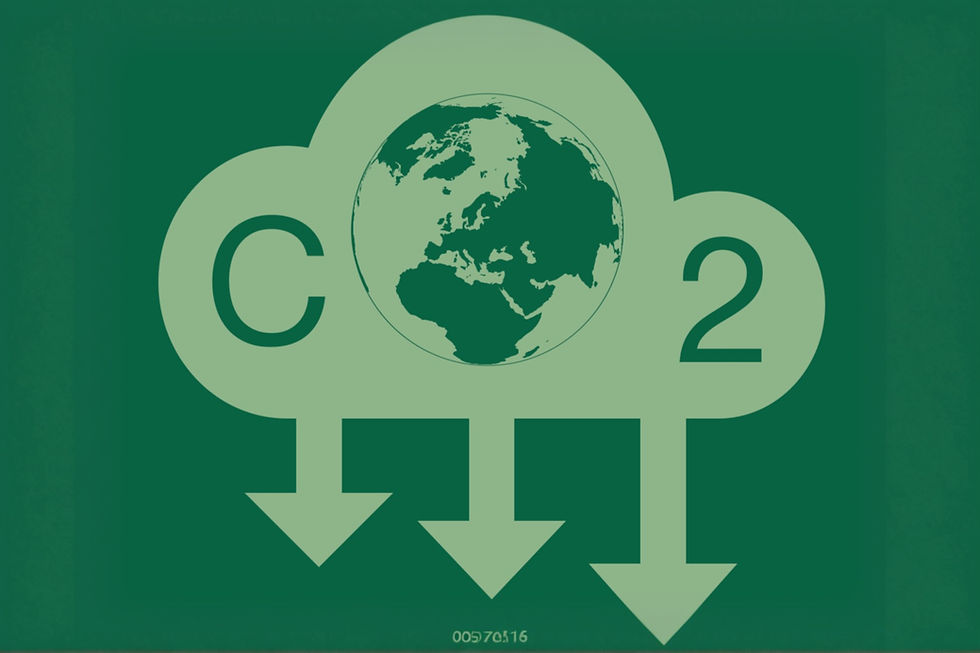A Climate Conscious Curriculum: the Low-Cost way to Combat Disinformation and Improve our Future
- Jakub Fegyveres
- Dec 8, 2024
- 4 min read
Jakub Fegyveres

What is the most important area of environmental policy? In my opinion, especially in this context, the relative importance of a given policy should be synonymous with, and measured by, its impact. It may be intuitive to turn to the most well-known policies; the ban on electric vehicles, or the 1.5-degree Celsius target agreed in Paris at COP21. These policies, and many others like them, were formed by educated policymakers, operating on the basis of a political mandate handed to them by an electorate sufficiently content with such advances. There is a school of thought, therefore, which emphasises the importance of the wider policymaking environment. In other words, the importance of adequate environmental education.
The current state of school curricula from around the world, as they relate to climate change, is woefully inadequate. This point is easiest made with reference to the United States (U.S.), where fossil fuel companies are able to exercise an influence what the nation’s children learn to a shocking extent. In 2016, for instance, a lobby group called the Oklahoma Energy Resources Board produced a book, which it distributed to the state’s schools free of charge. In it, a character called Petro Pete, who attends Petroville Elementary School, has a bad dream, in which all petroleum by-products disappear, making Pete’s life much more difficult. Upon waking, he cannot help but exclaim “all of my petroleum by-products are back!” American schooling is rife with examples of this kind of tacit industry promotion, which blurs the line between education and propaganda, ultimately producing a less informed populace, as it is designed to.
There are less overt examples of this corporate influence, which is certainly not limited to the United States. British Petroleum (BP), for instance, rather than creating stories of children extolling the virtues of petroleum, prefers to advance its agenda by promoting a neoliberal model of STEM education. This is designed to “dissuade young people from questioning or understanding the role of corporate power in the climate crisis”, limiting the spectrum of environmental policies they might consider legitimate or beneficial.
Placing the direct influence of multi-national corporations aside, it is also evident that national curricula are failing, even without their interference. A recent wide-ranging survey of teachers and students in 36 European countries found that, while 68% of students wanted to learn more about the environment and climate change, three quarters of teachers felt they lacked adequate training to deliver this education. Similarly, a 2019 Afrobarometer paper placed the climate literacy rate across Africa at 37%, though with vast differences depending on region and level of education. The latter point has also been demonstrated in a European context, as a 2022 study found that “Individuals with secondary or tertiary education were much less likely to deny climate change than those with primary level of education.”
Needless to say, these facts underscore the need for a sufficiently robust climate curriculum in primary education. Any citizen’s basic understanding of a crisis of this magnitude should not be determined by their education level, which tends to correlate with their socio-economic circumstances. As long as it remains so, any body politic is entirely vulnerable to a politicisation of the question of the existence of anthropogenic climate change, which education of a sufficiently good quality renders vanishingly unlikely. However, while the issue remains in question, there is political capital to be gained from it, especially through disinformation and populist rhetoric, ultimately leading to more damaging policies.
Therefore, it is clear that climate change should play a central role in the curricula, beginning at the primary stage. As a first step, it is crucial that education receives recognition (and funding) as a legitimate and useful tool for combatting climate change, as well as disinformation about it. This is all the more important because of the politically disadvantageous nature of analogous policies, which only societally manifest themselves in the medium- to long-term.
In addition, the existing system of confining teaching about the crisis to science-related subjects, even though experts contend that it should permeate across the curriculum more extensively. To exemplify, a History lesson about the industrial revolution may mention the emissions it created, and first language lessons might engage with relevant literature. This interconnectedness should also extend to building awareness of the intersection between social justice and the climate crisis, challenging the aforementioned neoliberal narrative.
Finally, as a more general point, it imperative that these teaching guidelines should emerge out of a detailed dialogue between the public, experts and policymakers. For this process to be most fruitful, it is also essential that it take place in an environment as free from politicization as possible, ideally within the auspices an international forum, such as the United Nations.
References
Franta, B. (2021) ‘Weaponizing economics: Big Oil, economic consultants, and climate policy delay’, Environmental Politics 31:4, 555-575.
Newell, P.; Paterson, M. (2010) Climate Capitalism. Cambridge University Press.



Comments